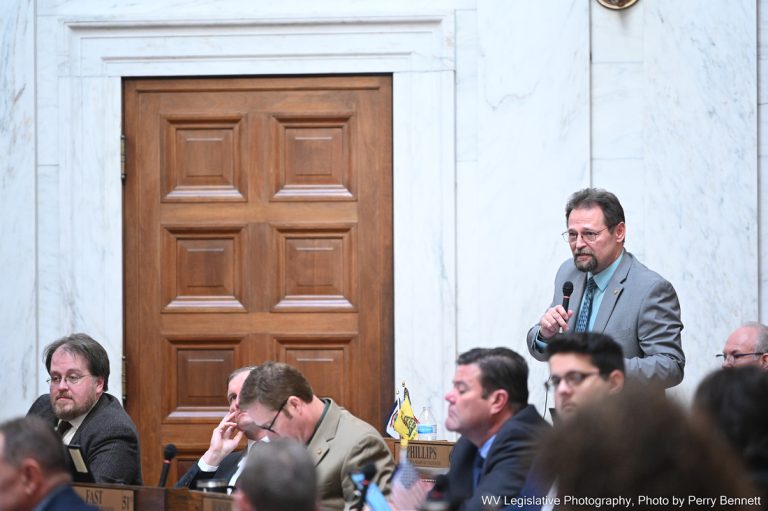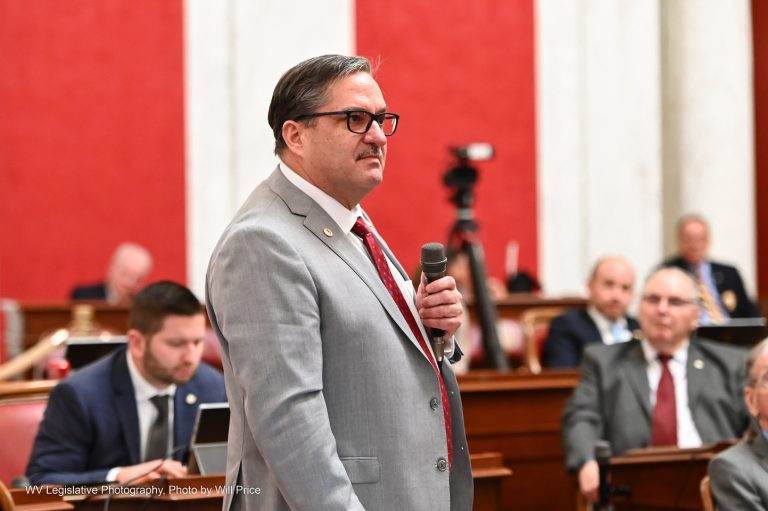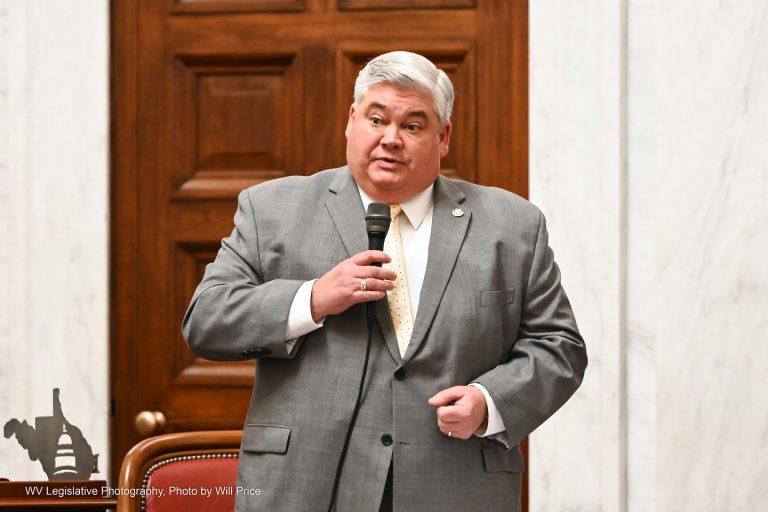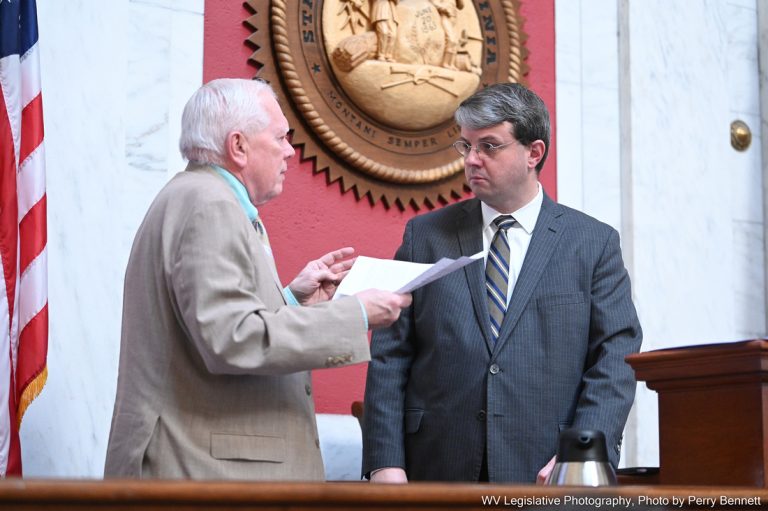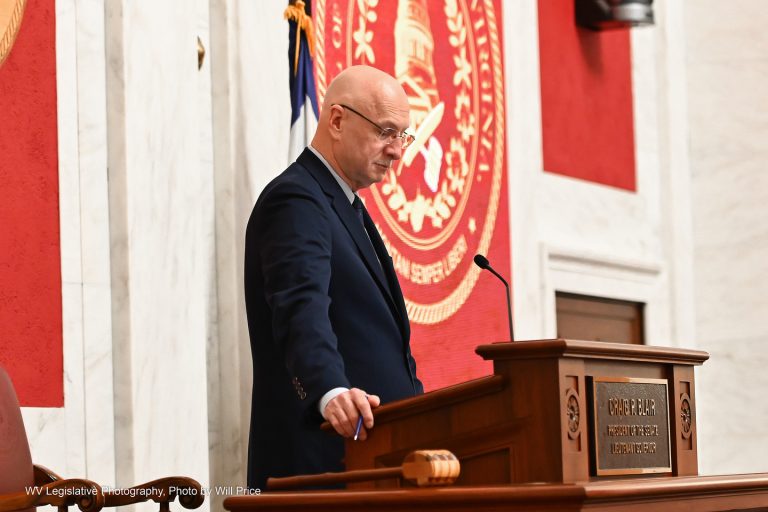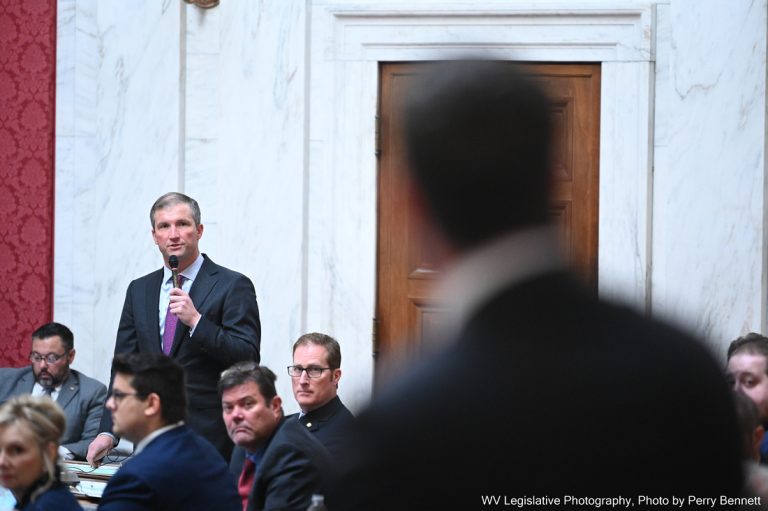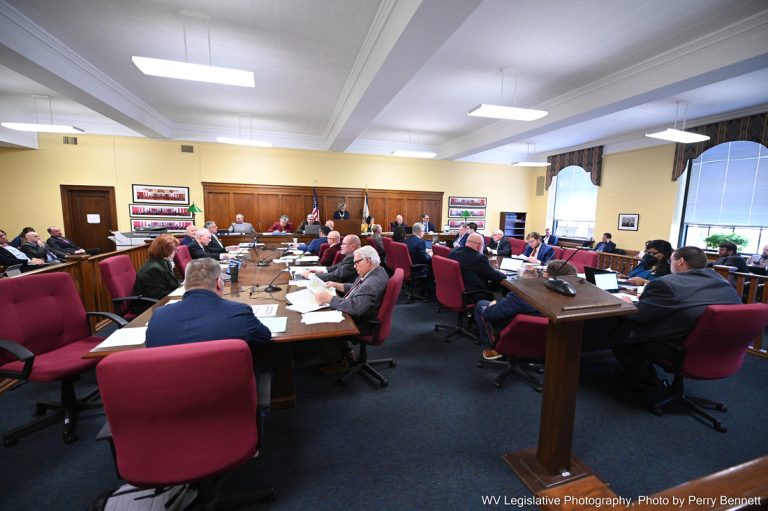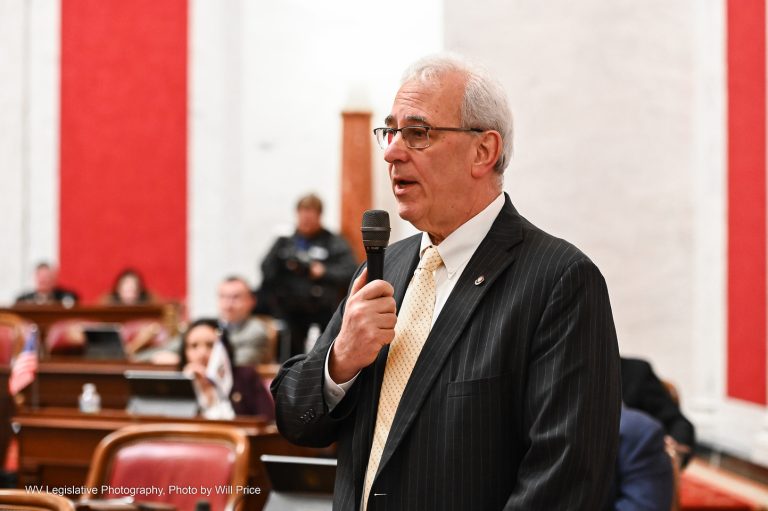Today the House of Delegates considered four bills, including Senate Bill 128, which had been advanced with the right to amend.
The first amendment offered was the Government Organization Committee’s amendment of Senate Bill 128. Senate Bill 128 states the authority and obligations of the Governor and Legislature when in a declared state of preparedness and state of emergency. The amended bill limits the duration of a Governor-declared state of preparedness or state of emergency to 60 days. To extend beyond those 60 days, the Legislature would pass a resolution extending. The Legislature may also condition, limit, terminate, or expand any action or directive made by the proclamation of the Governor relating to a state of preparedness or state of emergency.
Amendments were offered to this amendment during the floor session. Three of the amendments were rejected and two were adopted. The two adopted were offered by Delegate Phillips and Delegate Capito.
Delegate Phillips’ amendment preserves the Governor’s power to suspend the provisions of any regulatory statute for the conduct of state business or rules/orders of state agencies if compliance with such would prevent, hinder or delay action to cope with the present emergency, as long as the Governor is not granted the power to suspend any provisions defined in Section 6 of the code.
Delegate Capito’s amendment changes language in the bill to clarify that if disasters strike the same location on two different occasions, then the Governor can react as needed to the separate disasters.
The rejected amendments can be viewed here on the bill status page.
The amended Committee amendment was adopted and passed to the Senate.
The three other bills on third reading passed as well.
House Bill 2310 allows the DMV to issue an “Antique Fleet” single registration plate for use on fleets of five or more antique vehicles.
House Bill 2564 repeals obsolete language relating to administrative hearing procedures for DUI offenses.
House Bill 2602 adds in classifications of service personnel of the state minimum pay scale, which were inadvertently omitted with the passage of House Bill 4829 in 2022.
Four bills advanced from second reading and three from first reading.
The House is adjourned until 11 a.m. tomorrow, January 25, 2023.
Committee Meetings, Today
- The Sub-Committee on HB 2251 will meet immediately after the session in Room 410.
- The Committee on Technology and Infrastructure will meet at 2 p.m. in Room 434.
- The Committee on Energy and Manufacturing will meet at 2 p.m. in Room 410.
- The Committee on Health and Human Resources will meet at 3 p.m. in Room 215E.
- The Committee on Economic Development and Tourism will meet at 4 p.m. in Room 460.
Committee Meetings, tomorrow, Jan. 25
- The Committee on Volunteer Fire Departments and EMS will meet at 9 a.m. in Room 460.
- The Committee on Political Subdivisions will meet at 9:15 a.m. in Room 410.
- The Committee on Veterans Affairs and Homeland Security will meet at 10 a.m. in Room 215E.
- The Judiciary Committee will meet at 1 p.m. in Room 410.
- The Education Committee will meet at 2 p.m. in Room 434.
- The Government Organization Committee will meet at 3 p.m. in Room 215E.


